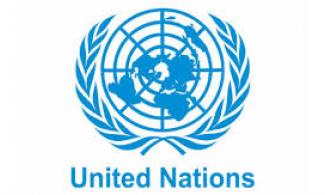
The case is being brought before the UN CEDAW committee (Committee on the Elimination of Discrimination against Women).
Two Nigerian migrant women, identified only as Princess and Doris, have reported a case against Italy and Libya to a United Nations Committee, that the two countries failed to protect their human rights as women and left them at risk of trafficking, exploitation, and abuse.
Both Princess and Doris arrived in Libya from Nigeria in 2017 and 2018 respectively. The two women alleged that they were trafficked from Nigeria to Libya by criminal networks for the purposes of prostitution.

According to InfoMigrants, while on their journey towards Libya, they said they were enslaved by the criminal networks and sold from gang to gang, even before they reached the Libyan borders.
Before starting their journey to Europe, both women were asked to swear not to divulge the secrets to authorities about their experiences in a so-called juju [traditional magic] ceremony in Nigeria.
They exposed that many women were asked to undertake such ceremonies, where it was revealed to them that if they made an attempt to escape, refused to pay back the debts for their journey or talked to the authorities about their treatment, they and their family would suffer dire consequences.
During a press conference held by ASGI (The Association for Juridical Studies on Immigration) on December 16, 2021, the lawyers working on the case of Doris and Princess explained more about their journeys and the reasons they decided to sue both Libya and Italy for the women’s mistreatment.
The case is being brought before the UN CEDAW committee (Committee on the Elimination of Discrimination against Women).
Doris said she left Nigeria in August 2018 with a group of other girls and a male trafficker and was sold in Agadez and in Sabah in Libya. In Sabah, she was sold to a man “who ran an informal detention place known as 'Adam’s Ghetto.' There she was tortured until a madam bought her 'saving' her from torture.”
After being subjected to forced prostitution for over a month, Doris escaped and started to travel north but she was then arrested by a man she said was a policeman and detained in Bani Walid.
From Bani Walid, Doris was bought for the fifth time in a few months by "a man who took her home and forced her to work as a maid without being paid."
ASGI said she escaped again in a detailed press release, and embarked on a journey to Europe. But after being intercepted by the Libyan coastguard, she was taken to another center and "subjected to inhuman and degrading detention conditions."
Princess also narrated her story which was similar.
Essentially, lawyers at ASGI explained that the two women fell victim to a system of enslavement in Libya which is supported by money from Italy and the EU.
Italy and Libya have had a series of bilateral agreements over the years, in which Italy has agreed to pay substantial sums of money to the Libyan coastguard and Libyan authorities, for training and equipment, in order to prevent migrants from reaching European shores.